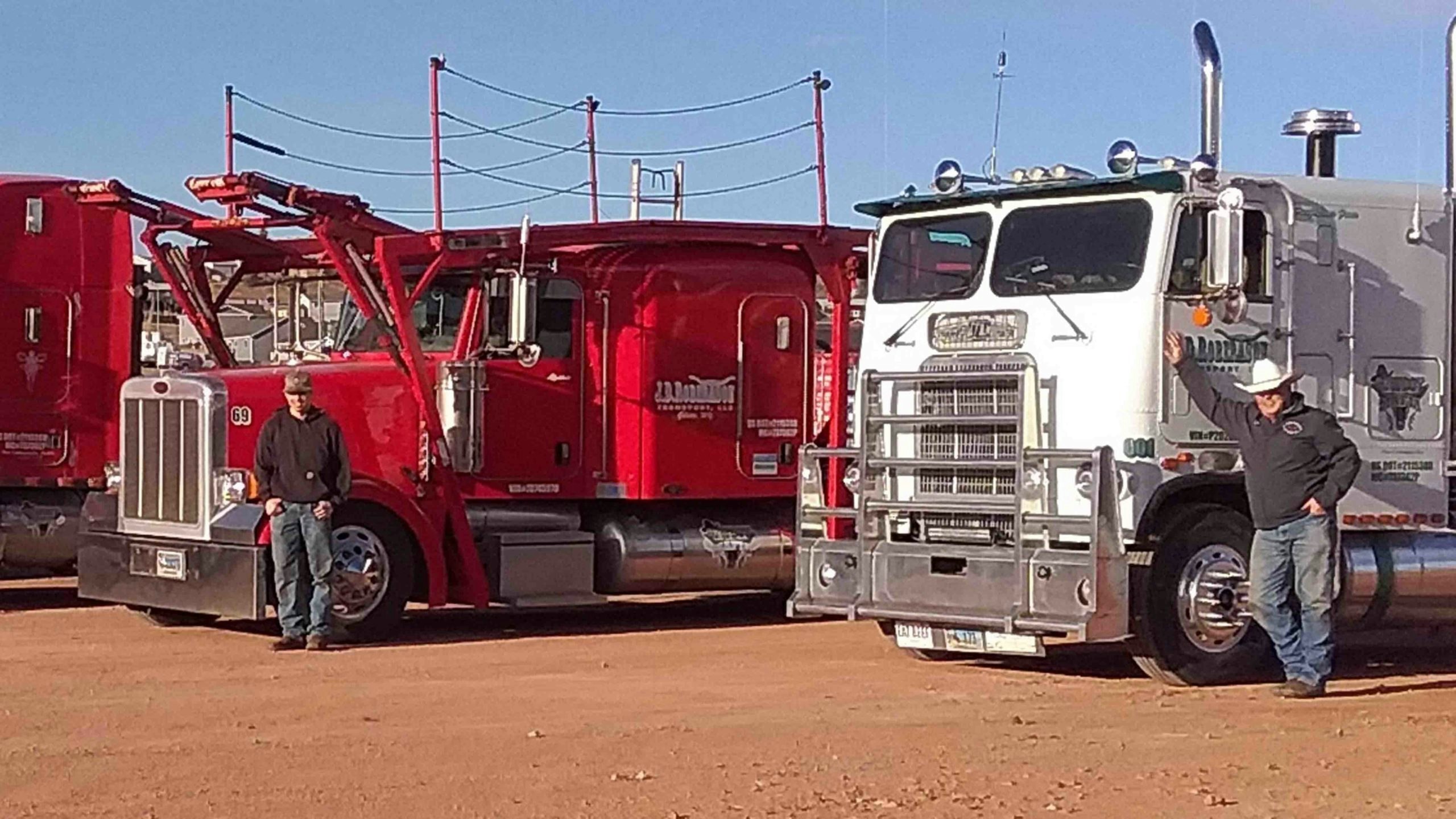It was after 7 p.m. when John Robertson parked his semi-truck Monday night after a day of delivering equipment to a couple of oil field sites in Converse and Campbell Counties.
Last week, he was delivering cattle in South Dakota. Before that, he was up on the Canadian border delivering parts to a drilling rig.
The Rozet-based trucker and owner of J. D. Robertson Transport, LLC, isn’t short of work. But escalating diesel fuel costs are definitely cutting into his profits.
Right now, Robertson estimated the price of fuel for local trips has topped $100 to $150 a day, while long runs are up to $300 to $400 a day.
Between record-high inflation and a truck driver shortage that has left him with several empty trucks sitting on his lot, Robertson said he’s worried about the current economic climate and the future of his business.
“You try but you can’t keep up,” he said of the rising fuel costs. “It’s going to be a bad, bad storm pretty quick.”
In the end, Robertson said, it will be the consumer who pays the ultimate price.
“How much do you push on to the mom and her four kids?” he asked. “All we can do is try to figure out how we can all make it.”
At the same time, however, Robertson noted things could be much worse.
“It’s tough times, but there’s people having tougher than us,” he said. “Nobody throwing bombs at us yet.”
Rising Prices
As of Tuesday, the cost of a gallon of diesel in Wyoming was $4.80 a gallon, according to AAA, compared to a national average of $5.12 per gallon. This was up 40 cents over last week’s average of $4.40 a gallon and almost $1 over $3.85 a month ago.
Within the state, the cheapest gallon of diesel on Tuesday was at the Loaf ‘N Jug in Cheyenne at $3, followed by $4 at the Exxon in Guernsey and $4.05 at the Maverik in Sheridan, according to the website GasBuddy.com, which tracks national fuel prices.
It’s not just the high cost of diesel plaguing trucking companies, but rather the way in which they are rapidly escalating day-to-day that has many Wyoming truckers worried.
Fuel is the second biggest cost to carriers behind wages and benefits, according to Sheila Foertsch, managing director Wyoming Trucking Association, who said these increased costs negatively affect a carrier’s bottom line immediately.
Many trucking companies are able to tack on a fuel surcharge as part of their contracts. The surcharges are adjusted weekly based on the cost of a gallon of diesel as specified by the U.S. Department of Energy.
Small owner-operators like Robertson, however, have a much more difficult time absorbing these costs, Foertsch said, and will have to adjust the rates they charge, which are then passed on to the customer.
Regardless of built-in fuel offsets, the rising cost of diesel and other petroleum products in general is already taking its toll on Wyoming trucking companies.
Roger King, owner of Cowboy State Trucking in Kemmerer, said these are the highest fuel prices he’s ever seen, even worse than during the recession in late 2008 and 2009.
“They are hitting us substantially hard and are affecting our cash flow,” he said.
His company employs around 35 drivers who haul dry bulk and liquid commodities like coal, soda ash, molten sulfur and other aggregates, primarily throughout Wyoming, although about 10 percent of its trips are to Nevada and Utah.
Right now, one load of fuel – that lasts about six to seven days – costs the company $53,000. Last year, King said the company was paying $25,300 for the same load.
The Surge
The surge in fuel costs began about three to four months after President Joe Biden took office, King said, and the cost has been steadily rising ever since.
And though the fuel surcharge is built into Cowboy State Trucking’s contracts, there’s no offset for the steep increase in the costs of other petroleum products like tires and oil, which have risen about 10% during the same period.
The only remedy at the disposal of trucking companies, King said, is to keep trying to cut costs.
If a mechanic quits, King said he won’t try to fill the position. Likewise, the company is cutting back on its printing and company lunches.
“Whatever it takes to keep costs down,” he said.
He hopes the Biden Administration will rethink its domestic energy policy.
“Let the American petroleum industry do what it does best,” King said. “We have the capacity in America to do it.”
Two years ago, King said, the price of diesel was less than half of what it is today and cash flow wasn’t an issue.
“Everybody was happy,” he said. “Now everybody is grumpy.”
“Drill Baby, Drill”
King’s sentiments echo that of the American Trucking Association (ATA) of which WTA is an affiliate.
In a March 6 opinion piece, ATA President and CEO Chris Spear called on the Biden Administration to “get real about American energy independence.”
To this end, the group encouraged the president and Congress to take immediate steps to increase domestic production and stop relying on foreign adversaries to fulfill the nation’s oil supply.
The association said it supported the transition to cleaner, renewable fuels in the long-term, but asked for a common-sense approach in securing the nation’s current energy needs.
Unprecedented Terrain
Corte McGuffey, CEO of Bonneville Transloaders, agreed he has never seen similar price increases in the past and is watching the daily hike in prices with alarm.
In one day, for example, the price per gallon spiked by 35 cents. Back in 2013 when prices were similarly high, he said, the company was worried about 1- and 2-cent per gallon hikes when the price for diesel was hovering around $4 a gallon, but today’s prices are unprecedented.
The Riverton-based company runs about 35 trucks that haul extractive bulk products like soda ash and molten sulfur from Green River to railcars in Bonneville, near Thermopolis. On average, McGuffey estimated the company burns through about 3,000 gallons a day
Since the end of February, diesel prices have continued to rise. In a 10-day span, the price per gallon went up by $1.42, or around $4,000 to $5,000 a day for McGuffey’s company.
The cost has come down a bit since the all-time high on March 9, he said, but it’s hardly a respite.
Grit Your Teeth
Like Cowboy State Trucking, BTI is able to recoup most of the fuel costs in surcharge fees, but the fees don’t cover everything.
“You grit your teeth and bear down and try to get through these tough times,” McGuffey said. “If it stays like this, it really starts to affect the bottom line and you have to cut costs.”
How high fuel prices will have to get before the company has to start cutting costs is anybody’s guess, McGuffey said, because this is uncharted terrain and there’s no indication of whether this will get better or worse in the short-term.
“We’re worried,” he said. “It’s just kind of adds on to the transportation and truck driving business. The margins aren’t great. It’s a tough business. The biggest thing right now is the labor shortage, and this is piling onto that.”
His company has six to eight unfilled positions, he said, and last year, the company gave their drivers the highest raise to date, but it was was eroded by inflation.
“We’re doing the best we can to take care of our employees,” he said. “These are tough times.”





